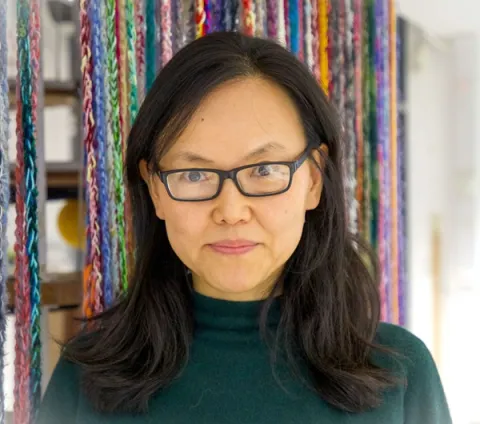Project overview
Osteoarthritis (OA) is the most common musculoskeletal condition, with knee OA being the most prevalent. People with knee OA in the UK are predicted to increase from 4.7 to 8.3 million by 2035. Knee joint pain typically reduces physical activity, independence, and quality of life. Currently knee OA pain is managed by medication (NSAIDs/opioids) which costs £195.3 million p.a.. However, medication may cause serious side effects. Uncontrolled pain ultimately may necessitate joint arthroplasty. 106,572 primary knee replacements were performed in 2019, 98% of which resulted from knee OA, costing ~£800 million p.a. in the UK.
This project aims to develop an electrotherapy product, based on a wearable garment, to relieve knee OA pain through transcutaneous electrical nerve stimulation (TENS), and exercise muscles through electrical muscle stimulation (EMS). Sensing yarns integrated into the garment will accurately monitor joint movements providing users with real-time feedback. The TENS/EMS electrodes and sensing yarn will be integrated into a discreet and aesthetic garment for everyday use. The product will be controlled by a wireless controller unit. An app will allow the user to access their treatment data and monitor progress, record feedback, and communicate with healthcare professionals remotely. The product will allow users to manage their pain and exercise muscles wherever and whenever required. This will lead to better patient outcomes while reducing healthcare costs.
This project builds on our previous successful feasibility studies of a textile with integrated electrodes for pain relief and muscle stimulation, and a sensing textile for movement monitoring together with the associated electronics. Early-stage TENS prototypes have been co-designed and tested with people with knee OA and healthcare professionals. User test results have demonstrated pain reduction, ease of use and user comfort. The feedback collected through public and patient engagement and user testing has informed the design of the product targeted in this proposal.
The product will be co-developed with end users who will iteratively feedback their user requirements and test prototypes. Subcontractors will support user-centred design and the development of scalable manufacturing process to achieve market fit and volume production. A home usability test will be conducted to ensure the product is suitable for independent use in the home environment.
A pilot Randomized Controlled Trial (RCT) will be conducted to establish efficacy in pain management and inform a future definitive RCT. An ISO13485 Quality Management System (QMS) and technical documentation will be developed to demonstrate compliance with UK and EU Medical Device Regulations. We will disseminate the research outcomes and engage stakeholders to promote technology uptake in order to capture the economic and societal benefits of the product.
This project aims to develop an electrotherapy product, based on a wearable garment, to relieve knee OA pain through transcutaneous electrical nerve stimulation (TENS), and exercise muscles through electrical muscle stimulation (EMS). Sensing yarns integrated into the garment will accurately monitor joint movements providing users with real-time feedback. The TENS/EMS electrodes and sensing yarn will be integrated into a discreet and aesthetic garment for everyday use. The product will be controlled by a wireless controller unit. An app will allow the user to access their treatment data and monitor progress, record feedback, and communicate with healthcare professionals remotely. The product will allow users to manage their pain and exercise muscles wherever and whenever required. This will lead to better patient outcomes while reducing healthcare costs.
This project builds on our previous successful feasibility studies of a textile with integrated electrodes for pain relief and muscle stimulation, and a sensing textile for movement monitoring together with the associated electronics. Early-stage TENS prototypes have been co-designed and tested with people with knee OA and healthcare professionals. User test results have demonstrated pain reduction, ease of use and user comfort. The feedback collected through public and patient engagement and user testing has informed the design of the product targeted in this proposal.
The product will be co-developed with end users who will iteratively feedback their user requirements and test prototypes. Subcontractors will support user-centred design and the development of scalable manufacturing process to achieve market fit and volume production. A home usability test will be conducted to ensure the product is suitable for independent use in the home environment.
A pilot Randomized Controlled Trial (RCT) will be conducted to establish efficacy in pain management and inform a future definitive RCT. An ISO13485 Quality Management System (QMS) and technical documentation will be developed to demonstrate compliance with UK and EU Medical Device Regulations. We will disseminate the research outcomes and engage stakeholders to promote technology uptake in order to capture the economic and societal benefits of the product.




